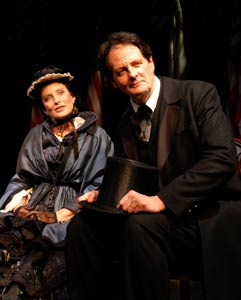This list of the fifty words appearing in the New York Times that are most frequently looked up by the paper’s readers has been making the rounds. I use twenty-six of the words often enough to describe them as part of my working vocabulary: apoplectic, apotheosis, banal, enervating, ersatz, feckless and fecklessness, fungible, glut, inchoate (one of my all-time favorite words), interlocutor, hagiography and hagiographic, laconic, louche, neologisms, peripatetic, peroration, recondite, risible, sanguine, sartorial, schadenfreude, shibboleths, and solipsistic and solipsism (remember The Tao of Steve?).
Inquiring minds want to know: how is it possible that 1,865 readers of the New York Times don’t know what banal means?
UPDATE: A reader writes:
The list is probably skewed by younger readers since it only registers online activity. We codgers, who read the print version, are not reflected in the count. Codgers have had more opportunities to learn words like louche and feckless.
Makes sense to me.

 Evelyn Teachout, my mother, turned eighty today. As soon as I realized that my out-of-town reviewing schedule would make it all but impossible for me to be in Smalltown, U.S.A., for her birthday, I arranged instead to spend a week there in May between trips to Texas and Washington, D.C. I figured that she’d rather have me at home for several days in a row than have me parachute into Smalltown for the Big Day and leave in haste a few scant hours later. I figured right–Mom preferred the first option–but I still felt a pang when I woke up this morning and knew that I wouldn’t be present in person to pay tribute to the woman who made me what I am.
Evelyn Teachout, my mother, turned eighty today. As soon as I realized that my out-of-town reviewing schedule would make it all but impossible for me to be in Smalltown, U.S.A., for her birthday, I arranged instead to spend a week there in May between trips to Texas and Washington, D.C. I figured that she’d rather have me at home for several days in a row than have me parachute into Smalltown for the Big Day and leave in haste a few scant hours later. I figured right–Mom preferred the first option–but I still felt a pang when I woke up this morning and knew that I wouldn’t be present in person to pay tribute to the woman who made me what I am. Most educated people have heard of the Lincoln-Douglas debates, but how many know anything about them beyond the fact that they were about slavery? Even if you’re not in need of a refresher course, I suggest you pay a visit to the Irish Repertory Theatre’s revival of “The Rivalry,” Norman Corwin’s 1959 play about seven debates that changed a nation’s course. Yes, it’s a history lesson, but a painless one that, unlike most latter-day docudramas, sticks surprisingly close to the truth.
Most educated people have heard of the Lincoln-Douglas debates, but how many know anything about them beyond the fact that they were about slavery? Even if you’re not in need of a refresher course, I suggest you pay a visit to the Irish Repertory Theatre’s revival of “The Rivalry,” Norman Corwin’s 1959 play about seven debates that changed a nation’s course. Yes, it’s a history lesson, but a painless one that, unlike most latter-day docudramas, sticks surprisingly close to the truth.